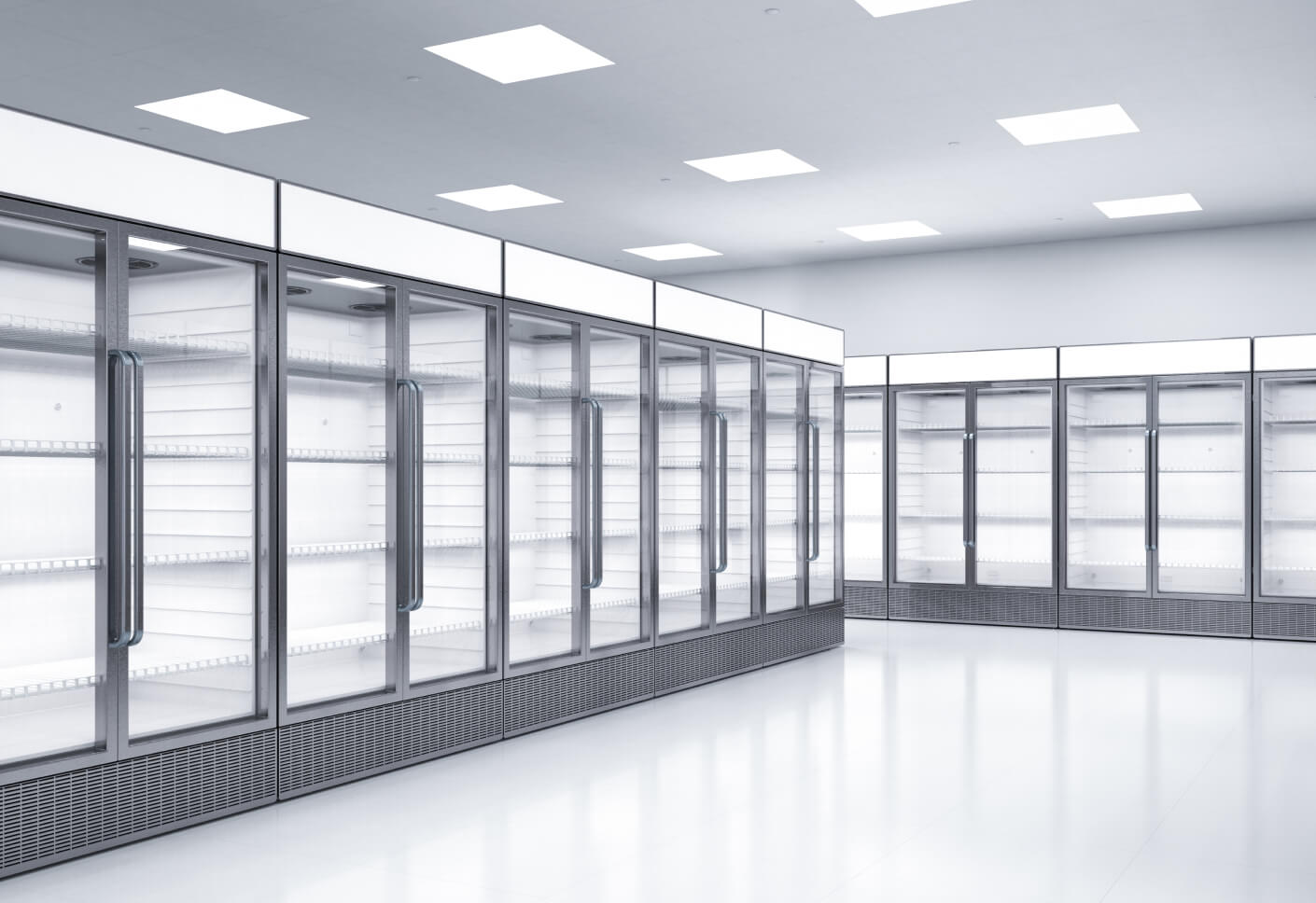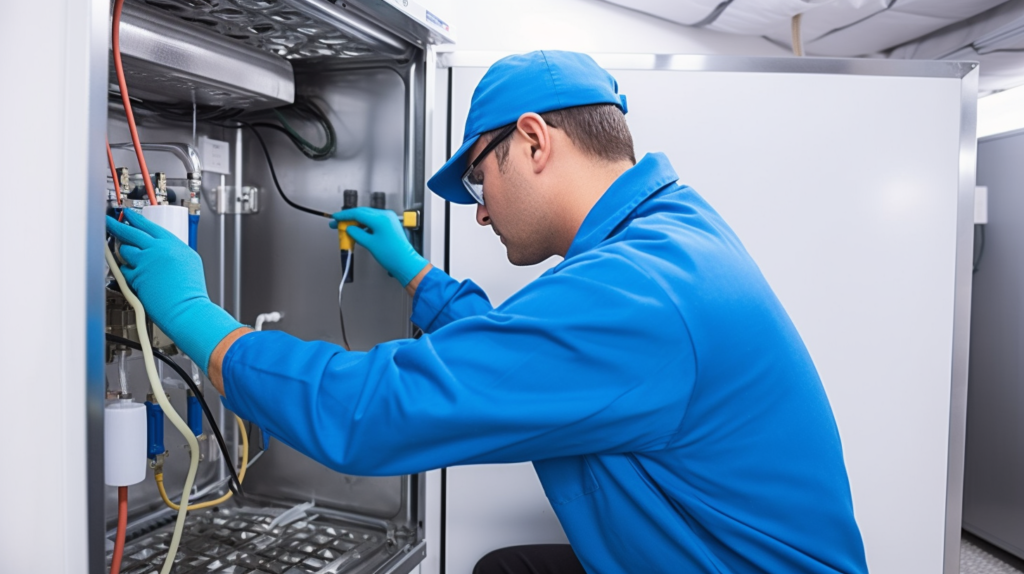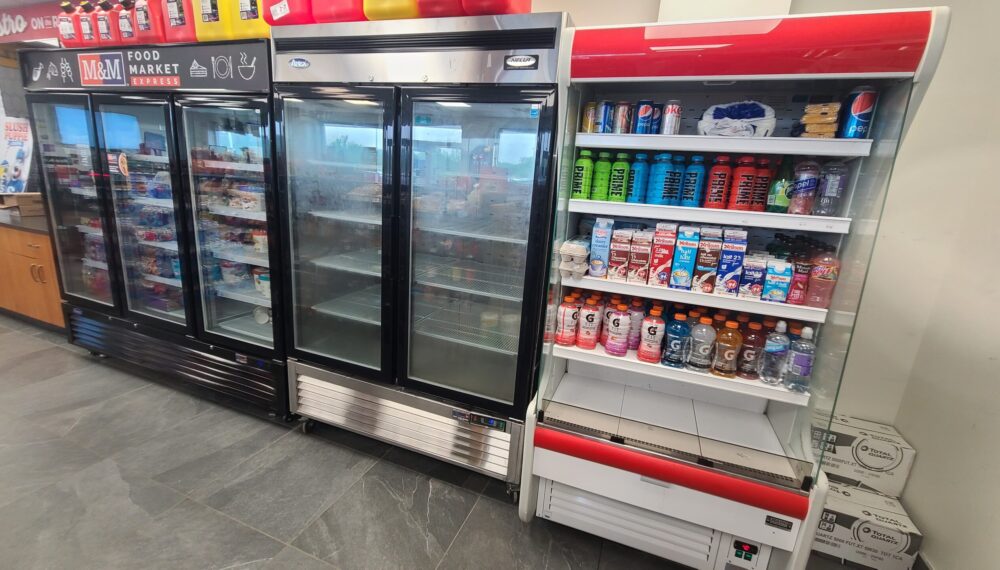Taking Full Advantage Of Efficiency: Commercial Refrigeration Repair Techniques for Cost-Effective Solutions

Assessing Refrigeration System Efficiency
To efficiently examine the efficiency of an industrial refrigeration system, it is important to perform comprehensive evaluations of its operational parameters and essential components. The first step in evaluating system performance is analyzing the functionality of the compressor.
Additionally, reviewing the condenser and evaporator coils is critical. Blocked or unclean coils can significantly impact the system's efficiency by preventing warmth transfer procedures. Cleansing the coils regularly and making certain appropriate airflow around them can optimize the system's cooling capability and minimize power intake. Checking cooling agent levels and stress is also crucial in assessing system efficiency. Low cooling agent levels or unusual stress can suggest leakages or malfunctioning parts that require immediate attention to protect against system failures and costly fixings. By systematically evaluating these functional specifications and vital elements, businesses can guarantee their business refrigeration systems operate at peak efficiency levels, reducing downtime and making the most of energy effectiveness.

Applying Preventative Maintenance Actions
Examining the performance of a business refrigeration system offers useful understandings that can inform the execution of preventative maintenance procedures essential for sustaining optimal capability and long life. Preventative upkeep is an aggressive strategy focused on determining and attending to possible problems prior to they escalate into pricey problems that disrupt procedures. By developing a routine upkeep timetable, refrigeration systems can run efficiently, decreasing power consumption and minimizing the danger of unforeseen break downs. Key preventative maintenance actions include cleaning and examining condenser coils, inspecting cooling agent levels, making certain correct airflow, and calibrating temperature level controls. In addition, keeping track of temperature and humidity degrees, checking door seals, and resolving any kind of uncommon sounds or odors quickly are necessary steps in preventative maintenance. Applying these steps not just extends the lifespan of the equipment yet additionally boosts food safety and security by keeping regular storage temperatures. Inevitably, investing in preventative maintenance procedures is a cost-efficient approach that assists businesses prevent pricey repair work and downtime, making sure reputable and constant refrigeration system performance.
Identifying Common Refrigeration Issues
One of the key facets in preserving commercial refrigeration systems is without delay identifying usual issues that might emerge during their procedure. One common problem is insufficient cooling, typically triggered by unclean condenser coils or a malfunctioning compressor. Regular cleansing of the condenser coils and guaranteeing proper air flow around have a peek at these guys the unit can aid stop this problem. One more common problem is refrigerant leakages, which can lead to inefficient air conditioning and possible environmental risks. Monitoring refrigerant degrees and performing regular assessments for leaks can aid alleviate this trouble. Additionally, malfunctioning gaskets on doors, causing air leaks, can cause the refrigeration system to work more challenging to maintain the desired temperature level. Normal evaluation and replacement of damaged gaskets are vital to prevent power waste. Finally, uncommon noises such as knocking, clanking, or hissing might suggest underlying mechanical issues that require immediate attention to avoid additional damage. By without delay identifying and addressing these common refrigeration issues, companies can guarantee the effective operation of their systems and reduce expensive repair work.
Utilizing Energy-Efficient Repair Service Techniques
When taking into consideration industrial refrigeration fixing, implementing energy-efficient strategies is paramount to enhancing the system's performance and decreasing operational expenses. One of the key techniques in accomplishing power efficiency is making certain that the refrigeration system is properly kept. Routine maintenance, such as cleaning condenser coils, looking for refrigerant leaks, and adjusting temperature settings, can dramatically boost energy efficiency.
Another energy-efficient repair work technique is updating to high-efficiency elements - commercial refrigeration repair. By replacing older, less effective parts with energy-efficient alternatives, such as ECM follower electric motors or LED lights, organizations can decrease energy usage and lower energy expenses. In addition, mounting programmable thermostats and energy administration systems can assist manage temperatures extra effectively, avoiding unneeded power usage
Additionally, maximizing the system's insulation and securing any kind of leakages can likewise contribute to energy cost savings. Appropriate insulation assists maintain consistent temperature levels within the refrigeration unit, decreasing the workload on the system and improving total efficiency. By integrating these energy-efficient fixing strategies, organizations can not just minimize their environmental effect however likewise accomplish long-term cost financial savings.
Optimizing Refrigeration System Life-span
To ensure the durability and optimal performance of commercial refrigeration systems, keeping energy-efficient fixing methods is necessary, with a focus currently shifting in the direction of making best use of the refrigeration system lifespan. Maximizing the here life-span of a refrigeration system includes proactive maintenance, prompt fixings, and adherence to producer guidelines.
Additionally, informing personnel on published here correct system operation and maintenance methods can add to the long life of the equipment. Educating workers to report any type of uncommon audios, leakages, or changes in efficiency can assist in catching issues in their preliminary phases. In addition, spending in top notch components and elements during repairs and replacements can improve the resilience of the refrigeration system. By prioritizing positive upkeep and utilizing top quality parts, organizations can enhance the life expectancy of their commercial refrigeration systems, inevitably reducing downtime and functional costs.
Conclusion
To conclude, by regularly evaluating refrigeration system efficiency, implementing preventative maintenance steps, identifying usual refrigeration concerns, making use of energy-efficient repair work techniques, and optimizing the system's lifespan, organizations can make best use of efficiency and minimize costs connected with industrial refrigeration fixing. These cost-effective services assist to make sure that refrigeration systems run at peak efficiency, inevitably resulting in boosted performance and productivity for organizations in the future.

When considering industrial refrigeration repair service, implementing energy-efficient strategies is critical to optimizing the system's efficiency and lowering operational prices.To ensure the durability and optimum efficiency of industrial refrigeration systems, maintaining energy-efficient repair techniques is crucial, with an emphasis currently changing in the direction of maximizing the refrigeration system lifespan. Optimizing the lifespan of a refrigeration system involves proactive maintenance, timely repair services, and adherence to maker guidelines.